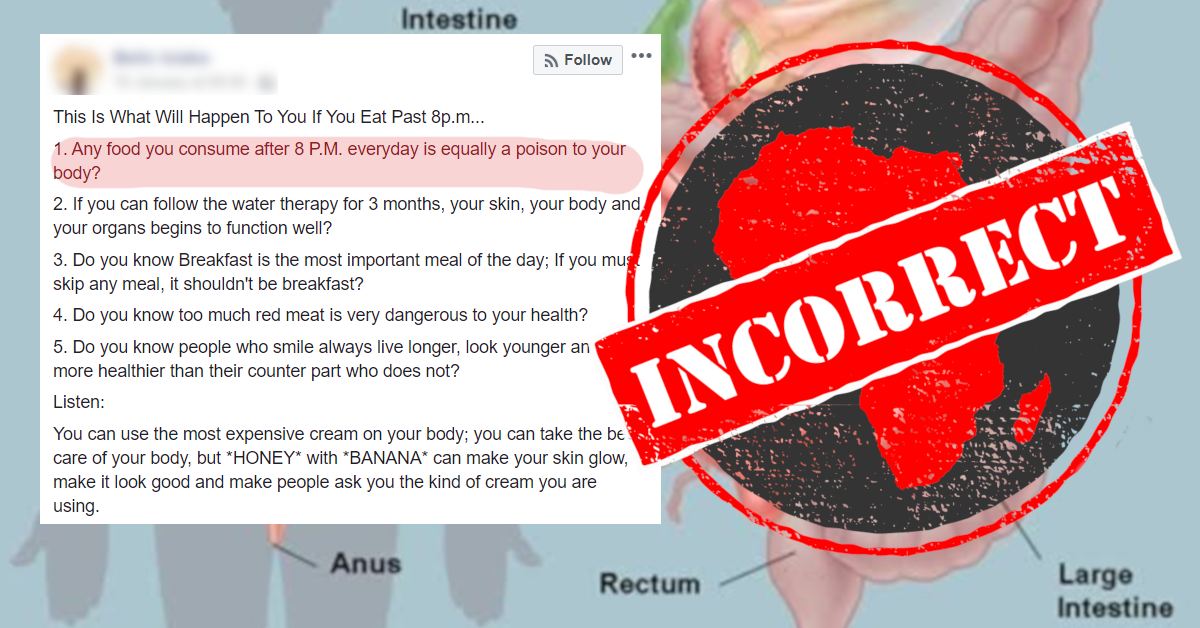“Any food you consume after 8 P.M. everyday is equally a poison to your body,” claims a post shared on Facebook in Nigeria in January 2020.
It’s the first on a list of five health claims, all headed by: “This Is What Will Happen To You If You Eat Past 8p.m.” The other four claims aren’t related to when food is eaten.
The post has been shared more than 100 times.
But does eating food after eight in the evening make the food poisonous? We asked an expert.

“It is not poison as long as the food is in good condition before consumption,” Prof Simeon Chituru Achinewhu, a food and nutritional biochemistry specialist and fellow of the Nigerian Institute of Food Science and Technology, told Africa Check.
“But we advise people to eat their food early.”
Eating early in the evening, a few hours before bed, may help ease digestion and increase metabolism, he said.
Fresh food – food that isn’t rotten – is safe to eat, any time of the day or night.
Eating after 8 pm doesn’t turn food into poison. – Jennifer Ojugbeli
It’s the first on a list of five health claims, all headed by: “This Is What Will Happen To You If You Eat Past 8p.m.” The other four claims aren’t related to when food is eaten.
The post has been shared more than 100 times.
But does eating food after eight in the evening make the food poisonous? We asked an expert.

Maybe eat early – but fresh food not poisonous at night
“It is not poison as long as the food is in good condition before consumption,” Prof Simeon Chituru Achinewhu, a food and nutritional biochemistry specialist and fellow of the Nigerian Institute of Food Science and Technology, told Africa Check.
“But we advise people to eat their food early.”
Eating early in the evening, a few hours before bed, may help ease digestion and increase metabolism, he said.
Fresh food – food that isn’t rotten – is safe to eat, any time of the day or night.
Eating after 8 pm doesn’t turn food into poison. – Jennifer Ojugbeli
Republish our content for free
For publishers: what to do if your post is rated false
A fact-checker has rated your Facebook or Instagram post as “false”, “altered”, “partly false” or “missing context”. This could have serious consequences. What do you do?
Click on our guide for the steps you should follow.
Publishers guideAfrica Check teams up with Facebook
Africa Check is a partner in Meta's third-party fact-checking programme to help stop the spread of false information on social media.
The content we rate as “false” will be downgraded on Facebook and Instagram. This means fewer people will see it.
You can also help identify false information on Facebook. This guide explains how.





Add new comment